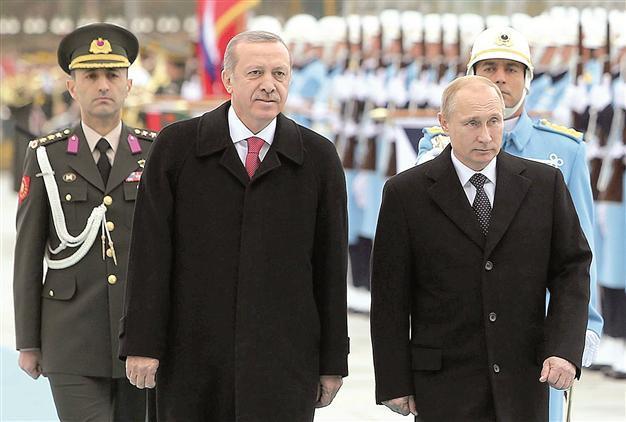Russia-Turkey gas link plans intact despite 'difficulties': Kremlin
MOSCOW - Agence France-Presse

AFP Photo
Plans for a new gas pipeline between Russia and Turkey remain intact despite "difficulties", the Kremlin said on Sept.23, days after Ankara said talks on the deal were frozen.
At a meeting in Moscow, Russian President Vladimir Putin and his Turkish counterpart Recep Tayyip Erdoğan agreed that "work would continue" on the project, Kremlin spokesman Dmitry Peskov said.
"It is complex work which implies difficulties, but it will all follow its course," he said, indicating the two would meet again before the year's end "to coordinate their approaches" to the partnership.
"Turkey remains a very important partner for us," he added.
On September 11, Turkey said talks on the new pipeline were suspended because of preconditions imposed by Russian gas giant Gazprom over the discount Turkey wants in the price of Russian gas imports.
"I am not saying the sides have walked away from the table, I am saying that the talks are frozen," energy ministry official Sefa Sadık Aytekin reportedly said on the sidelines of a conference in Istanbul.
Putin had announced the plan for a Turkstream pipeline in December 2014, saying it would replace Russia's now junked South Stream joint venture with EU firms.
However, construction of the pipeline has never properly got under way, leaving analysts suspicious over the feasibility of the project.
Analysts had already questioned the need for the project at a time when global energy prices are falling and the EU is looking for alternatives to Russian gas.
The plan envisages four 900-kilometre (560-mile) offshore pipelines running under the Black Sea linking southern Russia to western Turkey.
This would allow Russia to achieve its goal of delivering gas to Europe while avoiding the territory of its conflict-torn neighbour Ukraine.
The projected capacity of the project is 63 billion cubic metres of gas.
The project was also seen as sign of improving relations between Russia and Turkey at a time of frosty ties with the West.
The first of the four lines was to be constructed by December 2016, with the gas first going to the Turkish market and then to foreign buyers.
